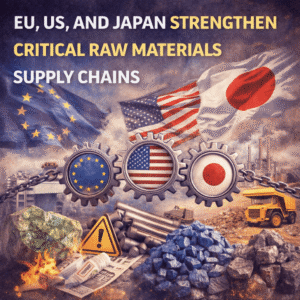

CEO
PACON Mfg, Inc. CEO Steven McClure describes the company’s road to establishing itself as a recognized leader in manufacturing mission-critical mechanical components as “circuitous, but intentional.”
PACON is a machine shop dedicated to precision-machining mission-critical, complex-geometry, close-tolerance components with a relentless focus on its customers’ needs. It is recently named Modern Machine Shop Magazine’s “Top Shop” and Aerospace & Defense Review’s CNC Machining edition cover story.
McClure describes the journey as “intentional” because his vision of what could be achieved through proper investment, innovation, and team building on top of the company’s fantastic history, reputation for quality products, and superior customer set was crystal clear from the day of acquisition.
McClure spent his career in the semiconductor industry, establishing himself first as an engineer designing, testing, and manufacturing RF and Microwave circuits for the Super Conducting Super Collider, then Hughes Aircraft radars and satellites (now Raytheon and Boeing) and later Teledyne Microelectronics guidance system components. During this time, he discovered the works of Shewhart and Deming and first applied those Lean Manufacturing concepts to his circuit designs. This experience would later be pivotal in the transformation of PACON to an advanced manufacturing leader serving the very defense primes, government laboratories, and the world’s leading OEMs he had previously worked for.
As the semiconductor industry turned its focus towards digital cellular and optical networking versus the personal computer, McClure’s RF and Microwave background supported his success in product management and later executive management roles. In these roles, he engaged the world’s most innovative OEMs and witnessed first-hand America’s fever to offshore its manufacturing to today’s global supply chain leaders. In addition, he witnessed the rise of global competitors leveraging advances in process automation, automated in-process inspection, Computer-Aided Design (CAD) simulation/emulation, and globally distributed virtual design teams.
In 2013, this observation gave way to a new realization. “Product that would go offshore for manufacture, probably has,” McClure recalls, “If I could acquire an American manufacturer, the risk of business loss to offshoring should be de minimis.” He believed what remained onshore could never go offshore. Industries such as Defense or equipment reliant on challenging to make components or costly equipment whose performance could not be put in jeopardy to “save a buck” with a lower cost component of variable quality.
With this realization in mind, McClure acquired an American manufacturer with a diversified customer base serving large, innovative OEMs and/or defense primes. He sought a company with lengthy history-making mission-critical components and found just that in PACON.
Becoming An Industry Leader
“Our road has been somewhat circuitous, but intentional,” McClure describes. “As a team, we literally have run through the principles of business transformation. The first months after acquisition, each of us were getting to know the other.” The previous owner was employee one, joining shortly after the company’s inception in 1977. With the company’s founder, the previous owner had built a fantastic business, well known for its quality output, and skills in machining difficult parts. In return, PACON had been rewarded with long-standing customer relationships.
“Initially, some employees expected me to simply replace the old owner, others expected me to change-up things ASAP. Instead, we went through a major cultural shift towards personal responsibility, empowerment and enablement while observing our manufacturing process and identifying its strengths and weaknesses. I recall the day I shared a chart on high performing teams and the stages teams go through – form/storm/norm/perform – to explain why I was ok with some of the personnel changes that had occurred. These changes were essential to establishing a framework for us to innovate and grow. My intention to transform PACON into a recognized leader in advanced manufacturing of mission critical components relied upon a conscious and persistent pursuit of process improvement by the individual, fostered by an environment of open discussion, and enabled by management support.”
As the team began to normalize, it was also solidifying what PACON was uniquely capable of producing and what it did that was most valued by its customers – mission-critical, precision machined components. Data was collected and scrutinized to determine those process points that jeopardized consistent delivery to customer expectations of these mission-critical products. Actionable conclusions were drawn, and process improvements were tested. “Much of the time, the philosophy of Deming and Lean Manufacturing found its way into these improvements – reduce complexity, improve quality,” says McClure. “Not everything we tried worked out, but with each marginal gain, we transformed traditional CNC machining processes into Precision Machining 4.0®” A flywheel of innovative process improvements was born.
Enhancing the Company
“We have a relentless focus on meeting our customer’s requirements – consistently and predictably,” says McClure. “As long as we maintain this focus, and invest in our process to achieve this goal, we will continue to outperform others less focused.” This philosophy McClure credits for the team’s process improvements culminating in Precision Machining 4.0®. PACON has carefully combined best-in-class CNC machines with Industry 4.0 technologies to implement Lean Manufacturing principles to produce lower-cost, quality precision machined components for both prototype and production. The process begins with a seamless interconnection of Digital-to-Physical manufacturing. Working from our customer’s Computer-Aided Design (CAD) representation of the part they want to be manufactured, we program the CNC machine’s cutting tool paths. The tool paths are programmed directly against the customer’s CAD model to ensure the part machined is precisely what the customer requested. In this phase, we can provide feedback to our customers, often suggesting manufacturability improvements or catching design problems before machining begins. “Since we are making mission critical components, our customers highly value any potential problem or improvement we may report that was previously overlooked,” McClure says. “We found one such problem on a design going to Mars. It’s difficult to repair a system on Mars, so this is a valuable role we can play.”
Next, PACON simulates the cutting tool program in software, saving valuable production time on the shop floor. PACON has its CNC machines modeled in software and can detect any equipment collisions in the digital environment before they occur in the physical environment, avoiding costly equipment damage. In addition, their software verifies the cutting tool program will produce a finished unit exactly matching the customer’s CAD model.
Once verified, PACONs machining programs are sent to the production floor, where they are scheduled on a CNC machine cell, potentially to be run “lights-out”. “Our 5-Axis machining cell runs 24/7 autonomously utilizing in-process automated tool inspection and enables PACON to achieve asynchronous, single-piece lot agile manufacturing,” McClure explains.
Taking the Brand toward Future
To demonstrate the value of PACON’s Precision Machining 4.0®, PACON cites its long-standing reputation as a recognized leader in delivering mission-critical precision machined components. For example, NASA called upon PACON to deliver more than fifty components for the Mars 2020 Rover Perseverance, including components for the Mars Oxygen In-Situ Resource Utilization Experiment (MOXIE). An essential NASA mission objective of Perseverance is to demonstrate technologies necessary to address the challenges of planned human exploration. MOXIE is designed to produce >99.6% pure Oxygen from the Martian CO2 atmosphere. Martian O2 production is essential for life support and rocket propellant for the explorers’ return to Earth. As PACON was working with the customer’s CAD files to program the machine cutting tool paths, it discovered a design problem overlooked before the parts were released for production. Had PACON not discovered this problem, the program may have suffered schedule delays or potentially an mission objective failure once on Mars. On April 20, 2021, MOXIE produced oxygen from carbon dioxide in the Martian atmosphere, the first experimental extraction of a natural resource from another planet for human use.
Another example PACON cites is the production of components for more than two thousand automated digital PCR systems used to automate initial detection, accelerate diagnosis verification, and support Operation Warp Speed vaccine development in the fight against the COVID-19 pandemic. In an unprecedented period of innovation, digital PCR plays an essential role in fighting COVID and ultimately in the war against cancer. Because of its investment in process improvements supporting asynchronous, agile production, PACON responded immediately to this sharp increase in demand without impacting the needs of its other customers. “PACON’s Precision Machining 4.0® was developed to address our customer’s mission critical component requirements,” McClure states, “I can think of no other mission more critical than helping stem the spread of a global pandemic!”
As PACON’s flywheel of innovative process improvements continues to turn, they continue to produce those marginal process improvements that Deming, the father of Lean Manufacturing, suggested were the essence of predictable quality outcomes that customers value most.

" Not everything we tried worked out, but with each marginal gain, we transformed traditional CNC machining processes into Precision Machining 4.0® "




© THE CEO PUBLICATION 2021 | All rights reserved. Terms and condition | Privacy and Policy